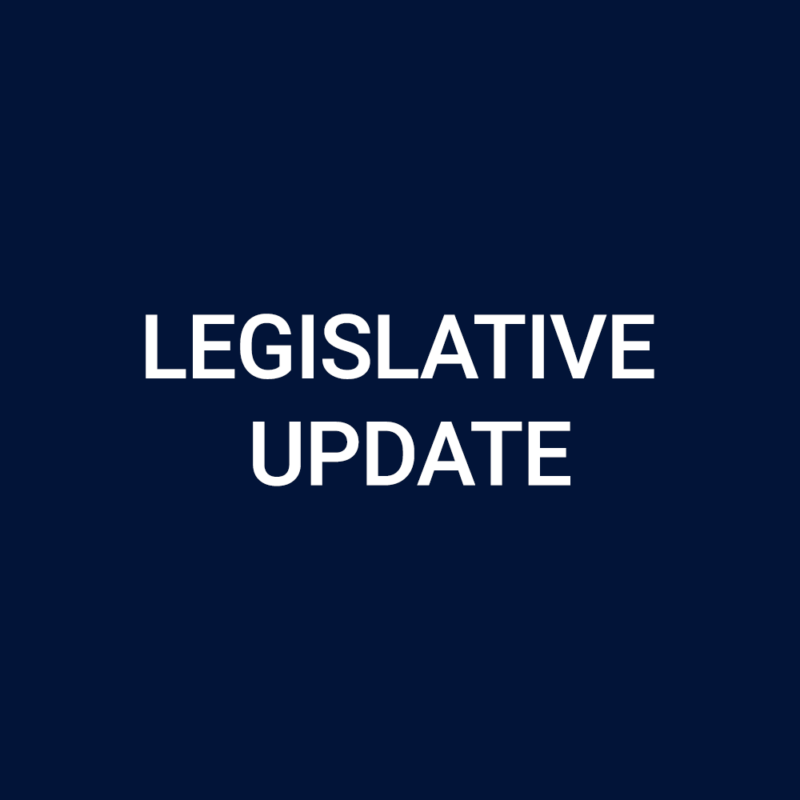This week, we finally got some good news about pensions. It appears we are not going to be facing a pension holiday proposal at the end of the spring legislative session.
If you recall, when the fiscal year 2020 budget was presented in mid-February we were pleased to hear about the proposed increases in K-12 education, early childhood, and higher education. The revenue for these increases was going to come from a variety of sources and things were going to be better than what we had experienced over the past few years. In addition, we opposed the governor’s proposal to underfund the pension systems. Most of the session, we have been in conversations with the governor, and others, about the impact another pension holiday would have on the state and the morale of educators.
This week, it was unveiled that the individual and corporate income revenue for April 2019 was $1.54 billion more than what had been projected. What happened next was a re-evaluation of the fiscal year 2020 budget and the realization that the state was going to have about $800 million more to be used for general funds. The question then became, what is the state going to do with the “extra” money?
Over the past year, the governor has expressed his commitment to a financially responsible budget. In keeping with that, he made the decision to dedicate any additional revenue to making the statutory fiscal year 2020 pension payment. What that means is the state will be able to meet the $9.1 billion in certified payments to the pension systems. This is good! Funding the pension systems is the only way we maintain our members’ retirement security. Now, the General Assembly can focus on passing legislation creating new revenue that can be used to address the needs of K-12 and higher education.
Senate committee bills
HB247 provides that a school district that contracts with a third party to teach a driver education course must ensure the teacher meets the educator licensure and endorsement requirements under the school code and must follow the same evaluation and observation requirements that apply to non-tenured teachers. The IEA supports this bill. The Senate Education Committee passed this bill with a vote of 11-2.
HB921 provides that if an educational support personnel employee is removed or dismissed as a result of a decision of the school board to decrease the number of educational support personnel employed by the board or to discontinue some particular type of educational support service and he or she accepts the tender of a vacancy within one calendar year from the beginning of the following school term, then that employee shall maintain any rights accrued during his or her previous service with the school district. The IEA supports this bill. The Senate Education Committee passed this bill with a vote of 11-0.
HB2087 provides that a school district’s decision to allow a student to take a portion of a driver education course through a distance learning program must be approved by the school’s administration, including the student’s driver education teacher and the student’s parent or guardian. The IEA supports this bill. The Senate Education Committee passed this bill with a vote of 13-0.
HB2700 provides that a TRS benefit recipient who has overpaid shall be entitled to a refund of overpayments for up to seven years of past payments. The IEA supports this bill. The Senate Government Accountability and Pensions Committee passed this bill with a vote of 6-0.
House committee bills
HR6 urges President Trump and the United States Congress to continue to work to find a solution to the problems created by the Windfall Elimination Provision. The IEA supports this bill. The House Personnel and Pensions Committee passed this bill with a vote of 10-0.
SB10 provides that in fixing the salaries of teachers, a school board shall pay those who serve on a full-time basis a rate not less than $32,076 for the 2020-21 school year, $34,576 for the 2021-22 school year, $37,076 for the 2022-23 school year, and $40,000 for the 2023-24 school year. The IEA supports this bill. The House Elementary and Secondary Education: Curriculum and Policy Committee passed this bill with a vote of 5-2.
SB1731 provides that if licensed school personnel or an administrator obtains mental health first aid training outside of an in-service training program, he or she may present a certificate of successful completion of the training to the school district to satisfy the training requirements. The IEA supports this bill. The House Elementary and Secondary Education: Administration, Licensing and Charter School Committee passed this bill with a vote of 7-0.
Important dates
A schedule for each chamber can be found on the General Assembly website.
Next week:
- Both the Senate and House are in session next week.
- The Senate and House are scheduled to remain in session through May 31.

